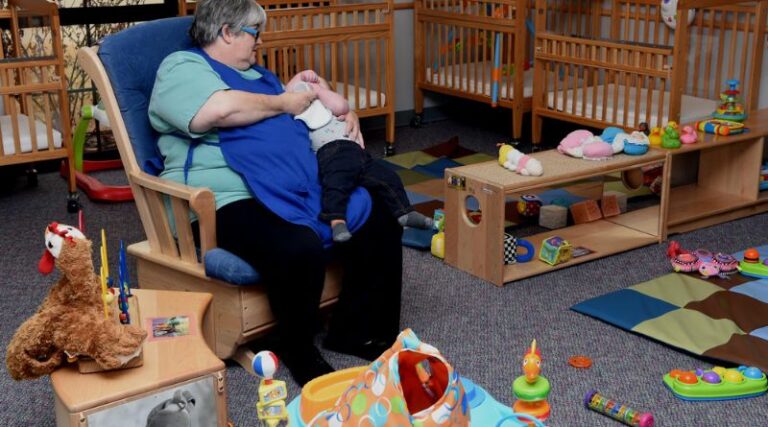
When it comes to skincare, many people focus on their own needs or the latest beauty trends. However, taking care of your child’s skin is just as important, especially considering how delicate and sensitive their skin can be. Skincare for kids involves more than just choosing the right products—it’s about understanding the unique needs of young skin and providing gentle care that helps protect it from environmental factors, irritants, and skin conditions.
In this article, we will discuss the basics of skincare for kids, how to establish a good skincare routine, and answer common questions parents might have about their child’s skin health.
Table of Contents
Why Skincare for Kids Is Different from Adult Skincare
Children’s skin is far more sensitive than adult skin, especially in the first few years of life. The outermost layer of skin (the epidermis) in babies and young children is thinner and more vulnerable to irritation and infection. Additionally, their skin is more prone to conditions like eczema, rashes, and sunburns.
Because of this, skincare for kids requires products and routines that are specifically designed for their delicate skin. Ingredients in products should be gentle, natural, and free from harsh chemicals or fragrances that could cause irritation. Establishing a skincare routine early on can help promote healthy skin and avoid common skin issues as your child grows.
Basic Skincare Tips for Kids
Taking care of your child’s skin doesn’t have to be complicated. Here are some simple steps to help establish a basic skincare routine for kids:
1. Choose Gentle, Kid-Friendly Products
For babies and young children, look for skincare products that are free from artificial fragrances, parabens, sulfates, and dyes. These ingredients can cause skin irritation and dryness. Instead, choose natural, gentle formulas designed for sensitive skin.
Some products to consider include:
- Mild body washes: Use non-stripping, moisturizing body washes or soaps.
- Gentle moisturizers: A fragrance-free lotion can help keep your child’s skin hydrated.
- Diaper rash creams: For babies, these products are designed to soothe and protect the skin from irritation caused by wet diapers.
2. Keep Baths Short and Sweet
While it may seem like a bath is a great way to relax your child, long baths with hot water can dry out their skin. Keep bath times short (around 10-15 minutes) and use lukewarm water. Avoid using harsh soaps or over-scrubbing your child’s skin. Gently pat their skin dry with a towel after the bath, rather than rubbing, to avoid irritation.
3. Moisturize Regularly
Moisturizing is essential to prevent dryness and maintain the skin’s natural barrier. After every bath, apply a gentle, kid-friendly moisturizer to your child’s skin. Pay attention to areas like elbows, knees, and any dry patches. Be sure to use a product that is specifically designed for children’s sensitive skin.
4. Protect from the Sun
Children’s skin is highly susceptible to sunburn. It’s crucial to apply sunscreen with at least SPF 30 when your child is playing outdoors, especially between 10 a.m. and 4 p.m. Make sure to reapply sunscreen every two hours, and more often if your child is swimming or sweating. Use broad-spectrum sunscreens that protect against both UVA and UVB rays. Look for physical sunscreens with zinc oxide or titanium dioxide, as these are generally less irritating than chemical sunscreens.
5. Dress Them in Soft, Breathable Fabrics
Choosing the right clothing can also impact your child’s skin health. Opt for soft, breathable fabrics like cotton, which are less likely to cause irritation. Avoid tight-fitting clothes that can rub against the skin, and make sure to dress your child in weather-appropriate layers to prevent overheating or chilling.
Common Skin Conditions in Kids
While kids often have smooth, soft skin, they are still prone to several skin conditions. Knowing how to identify and treat these common conditions can help keep your child comfortable and healthy.
1. Eczema (Atopic Dermatitis)
Eczema is a common condition in children, causing red, itchy patches on the skin, especially on the face, behind the knees, and on the elbows. It can be triggered by environmental factors, irritants, or allergens. To manage eczema, use fragrance-free moisturizers, avoid harsh soaps, and use prescribed creams or ointments from your doctor. Keeping the skin hydrated is key.
2. Diaper Rash
Diaper rash is a common concern for babies, especially if diapers are left on too long or if the baby has sensitive skin. The skin becomes irritated, inflamed, and may look red or raw. To treat diaper rash, change diapers frequently, use a barrier cream or ointment, and give your baby some time without a diaper to allow the skin to heal.
3. Chickenpox
Chickenpox is a viral infection that causes itchy red spots and blisters all over the body. Though it’s a common childhood illness, it can cause significant discomfort. Treatment usually involves soothing baths, antihistamines, and calamine lotion to relieve itching. Make sure your child doesn’t scratch the blisters to avoid scarring and infection.
4. Sunburn
Since children’s skin is more sensitive to the sun, they can burn more easily. Sunburn causes red, painful skin, and in severe cases, blisters can form. To prevent sunburn, always apply sunscreen before outdoor play, keep your child in the shade during peak sun hours, and make sure they wear hats and protective clothing.
5. Acne
Teenagers may develop acne due to hormonal changes. While it’s more common in older kids, younger children can also develop mild acne. If your child starts getting acne, use gentle cleansers, avoid harsh scrubbing, and try acne treatments specifically designed for sensitive skin. If acne persists or is severe, consult a dermatologist.
When to Seek Professional Help
While most skin conditions in children are mild and can be managed at home, there are times when you should seek professional help. You should consult a pediatrician or dermatologist if:
- Your child has severe or persistent skin irritation or rash.
- There are signs of infection, such as redness, swelling, or pus.
- Your child experiences severe pain or discomfort from their skin condition.
- You’re unsure of how to manage a particular skin issue, like eczema or acne.
FAQs About Skincare for Kids
1. Can I use adult skincare products on my child? No, adult skincare products often contain ingredients that are too harsh for children’s sensitive skin. It’s best to choose products specifically designed for children, which are gentler and free from harmful chemicals and fragrances.
2. How do I treat my baby’s dry skin? For babies with dry skin, use a gentle, fragrance-free baby lotion after baths. Make sure to moisturize your baby’s skin regularly to prevent dryness, and avoid using soaps with artificial fragrances. If the dry skin persists or worsens, consult your pediatrician.
3. When should I start using sunscreen on my child? You should start using sunscreen on your child as soon as they are old enough to be outside in the sun. For babies under six months, it’s best to keep them in the shade and avoid sunscreen if possible. For older babies and toddlers, use broad-spectrum sunscreen with SPF 30 or higher, and apply it liberally to all exposed skin.
4. What should I do if my child has eczema? Eczema can be managed with regular moisturizing and avoiding known triggers. Use gentle, fragrance-free lotions or creams and avoid harsh soaps. In some cases, a doctor may prescribe topical creams or ointments to help control flare-ups.
5. Is it safe to use essential oils for my child’s skin? While essential oils can be beneficial, they should be used with caution on children’s skin. Always dilute essential oils in a carrier oil, and avoid using them on babies or very young children. If you’re unsure, it’s best to consult with your pediatrician before using essential oils.
Conclusion
Skincare for kids is essential for protecting their delicate skin and promoting long-term skin health. By using gentle, age-appropriate products and following a simple skincare routine, you can keep your child’s skin happy and healthy. From choosing the right products to addressing common skin conditions, taking the time to care for your child’s skin sets the foundation for healthy habits as they grow. If you ever have concerns or questions, don’t hesitate to reach out to a pediatrician or dermatologist for expert advice.
ChatGPT can make mistakes. Check important info.






